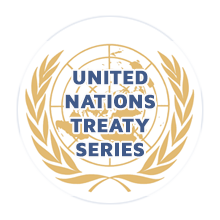Research at the Organization for the Study of Treaty Law (OSTL): Exploring Global Treaty Practices and Instruments
The Organization for the Study of Treaty Law (OSTL), an international association comprising scholars, diplomats, and institutions, is dedicated to advancing the global understanding of international law, with a sharp emphasis on treaty law and the law of treaties. By delving into the mechanisms of how treaties are formed, negotiated, and implemented, OSTL illuminates their profound impact on issues ranging from human rights to climate change. In the United States, for example, treaties are enshrined as the “supreme law of the land,” equivalent to the Constitution, yet their journey from presidential signature to Senate ratification often sparks intense debate. Through rigorous research and educational initiatives, OSTL fosters informed discussions on these critical legal frameworks, empowering global citizens to appreciate their relevance in daily life.
At the heart of OSTL’s research agenda is a multifaceted approach to treaty law. One key focus area involves examining how specific countries engage in treaty practices. This includes analyzing national approaches to treaty negotiation, ratification, and enforcement, highlighting variations influenced by domestic legal systems, political climates, and historical contexts. For instance, researchers at OSTL might explore the United States’ cautious ratification processes or emerging economies’ strategies in multilateral agreements, providing insights into how cultural and geopolitical factors shape international commitments.
Another pillar of OSTL’s work centers on in-depth studies of specific treaties, encompassing both major and minor instruments. Major treaties, such as the United Nations Charter—signed on 26 June 1945 in San Francisco and entering into force on 24 October 1945—receive particular attention for their foundational role in global governance. Amended in 1963, 1965, and 1973, the Charter outlines core purposes like maintaining international peace, promoting human rights, and fostering cooperation, while codifying principles such as sovereign equality and the prohibition of force, with the Statute of the International Court of Justice annexed. OSTL’s articles also delve into minor treaties, which, though less publicized, address niche issues like bilateral trade pacts or regional environmental accords, revealing their cumulative influence on international relations.
Beyond traditional treaties, OSTL extends its research to non-treaty instruments and Memorandums of Understanding (MOUs). These flexible, often non-binding agreements serve as vital tools for international cooperation where formal treaties may be impractical. OSTL’s analyses explore how MOUs facilitate preliminary commitments in areas like scientific collaboration or disaster response, bridging gaps in formal legal structures and adapting to evolving global needs. By comparing these instruments to binding treaties, researchers underscore their role in building trust and paving the way for more robust agreements.
OSTL’s research outputs, including articles and potentially blog posts, are designed to be accessible yet scholarly, encouraging contributions from experts worldwide. This collaborative ethos not only enriches the discourse but also ensures diverse perspectives on treaty law’s practical applications. As global challenges intensify, OSTL’s commitment to studying country-specific practices, varied treaties, and alternative instruments remains essential for navigating the complexities of international law.









